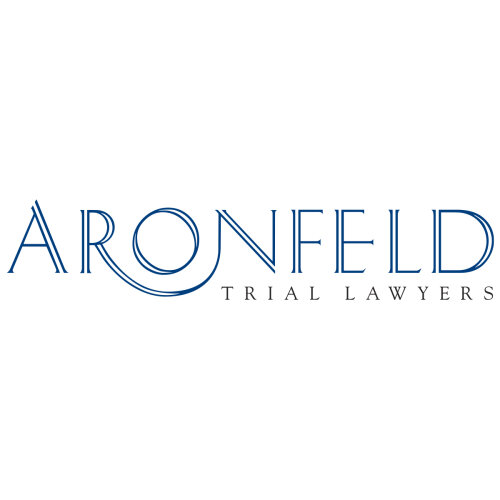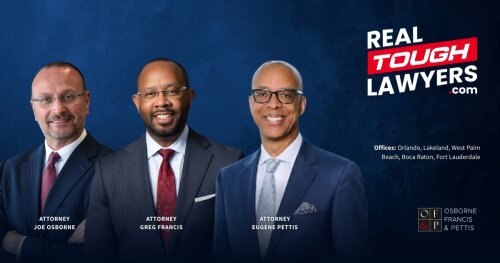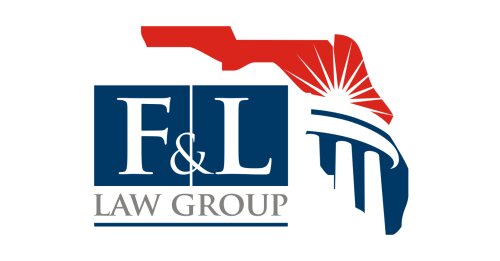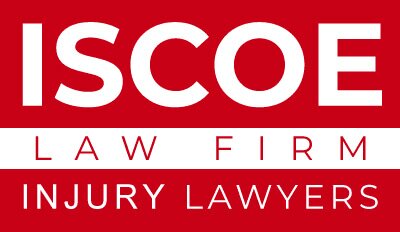Best Personal Injury Lawyers in Florida
Share your needs with us, get contacted by law firms.
Free. Takes 2 min.
Or refine your search by selecting a city:
List of the best lawyers in Florida, United States
About Personal Injury Law in Florida, United States
Personal injury law in Florida covers a wide range of situations where individuals are harmed due to the negligence or wrongdoing of others. This area of law allows injured parties to seek compensation for their losses, which may include medical expenses, lost wages, pain and suffering, and more. Common types of personal injury cases in Florida include car accidents, slip and fall incidents, medical malpractice, product liability, and wrongful death. Florida's legal landscape has some unique rules surrounding personal injury, making it important for those who have been injured to understand their rights and options.
Why You May Need a Lawyer
After experiencing a personal injury, many people find themselves facing not only physical pain but also financial and emotional stress. Navigating the legal system can be challenging, especially when insurance companies are involved. Situations where you may need a personal injury lawyer include:
- Being seriously injured in a car, truck, motorcycle, or pedestrian accident
- Getting hurt in a slip and fall incident on someone else’s property
- Suffering harm due to defective products
- Experiencing medical negligence or malpractice
- Enduring emotional trauma because of someone else’s actions
- Having an insurance company deny, delay, or undervalue your claim
- Facing complex legal or liability questions
- Dealing with severe injuries that could result in long term disability
- Losing a loved one due to someone else’s negligence (wrongful death)
A skilled personal injury lawyer can help you gather evidence, negotiate with insurance companies, ensure your rights are protected, and represent you in court if necessary.
Local Laws Overview
Florida has specific laws and regulations that impact personal injury claims:
- Comparative Negligence: Florida currently follows a modified comparative negligence rule. If you are found to be more than 50 percent at fault, you cannot generally recover damages. If you are less than 50 percent at fault, your compensation will be reduced by your percentage of fault.
- Statute of Limitations: For most personal injury cases, you have two years from the date of the incident to file a lawsuit. Certain cases, such as those involving government entities or medical malpractice, may have different time limits.
- No Fault Car Insurance: Florida is a no fault state for auto accidents. This means your own insurance (Personal Injury Protection, or PIP) typically covers your medical expenses regardless of who was at fault, up to certain limits. You may step outside the no fault system for severe injuries and pursue a claim against the at fault driver.
- Damage Caps: Florida limits punitive damages in personal injury cases. While there is generally no cap on compensatory damages, punitive damages are capped at three times the amount of compensatory damages or 500,000 dollars, whichever is greater, in most cases.
- Premises Liability: Property owners have a duty to keep their premises safe. The responsibilities vary based on your status (invitee, licensee, or trespasser) at the time of the injury.
Frequently Asked Questions
What should I do immediately after a personal injury accident?
Seek medical attention right away, document your injuries and the scene if possible, report the incident to the proper authorities, and consult a lawyer before speaking to insurance representatives.
How long do I have to file a personal injury lawsuit in Florida?
You generally have two years from the date of the injury to file a lawsuit. Special circumstances may apply, so speaking with a lawyer promptly is important.
What does “comparative negligence” mean in Florida?
Comparative negligence means your compensation can be reduced by your percentage of fault. If you are found more than 50 percent responsible, you may be barred from recovery.
How does no fault insurance work for car accidents?
Your own PIP insurance covers your medical bills and some lost wages after a car accident, regardless of who caused the crash. For severe injuries, you may be able to pursue a claim against the other driver.
What kinds of damages can I recover?
You may be eligible for medical expenses, lost income, pain and suffering, property damage, and in some cases, punitive damages.
What if the at fault party does not have insurance?
You may still have options through your own uninsured or underinsured motorist coverage, or by pursuing a personal injury lawsuit for compensation.
How are attorney fees handled in personal injury cases?
Most personal injury attorneys in Florida work on a contingency fee basis. You pay no upfront fees and the lawyer only gets paid if they recover compensation for you.
Do all personal injury cases go to court?
No, most cases are resolved through settlement. However, if a fair agreement cannot be reached, your lawyer may recommend taking the case to trial.
Can I still recover damages if I was partially at fault?
Yes, as long as you are less than 51 percent at fault. However, your recovery will be reduced according to your share of responsibility.
What documents should I bring when meeting a personal injury lawyer?
You should bring medical records, police reports, insurance information, photographs of injuries or the accident scene, witness contact information, and any correspondence with insurance companies.
Additional Resources
Several organizations and governmental agencies can provide support and guidance:
- Florida Bar Association: Provides lawyer referral services and legal information
- Florida Department of Highway Safety and Motor Vehicles: Source for crash reports and safety information
- Florida Office of Insurance Regulation: Oversees insurance providers and handles complaints
- Local legal aid organizations: Can offer assistance to those who meet income requirements
- Consumer Affairs Offices: Address complaints related to defective products or businesses
Next Steps
If you or a loved one has been injured in Florida, here are recommended steps to ensure your legal rights are protected:
- Seek medical attention and follow your doctor’s advice
- Document everything related to your injury and treatment
- Avoid giving detailed statements to insurance companies before consulting with a lawyer
- Collect all relevant documents and evidence
- Contact a qualified personal injury attorney who is experienced in Florida law
- Discuss your case and options with the attorney - most offer free consultations
- Act promptly to avoid missing important legal deadlines
Navigating a personal injury claim in Florida can be complex. Speaking with an experienced attorney is the best way to protect your interests and maximize your chances of receiving fair compensation.
Lawzana helps you find the best lawyers and law firms in Florida through a curated and pre-screened list of qualified legal professionals. Our platform offers rankings and detailed profiles of attorneys and law firms, allowing you to compare based on practice areas, including Personal Injury, experience, and client feedback.
Each profile includes a description of the firm's areas of practice, client reviews, team members and partners, year of establishment, spoken languages, office locations, contact information, social media presence, and any published articles or resources. Most firms on our platform speak English and are experienced in both local and international legal matters.
Get a quote from top-rated law firms in Florida, United States — quickly, securely, and without unnecessary hassle.
Disclaimer:
The information provided on this page is for general informational purposes only and does not constitute legal advice. While we strive to ensure the accuracy and relevance of the content, legal information may change over time, and interpretations of the law can vary. You should always consult with a qualified legal professional for advice specific to your situation.
We disclaim all liability for actions taken or not taken based on the content of this page. If you believe any information is incorrect or outdated, please contact us, and we will review and update it where appropriate.
Browse personal injury law firms by city in Florida
Refine your search by selecting a city.














